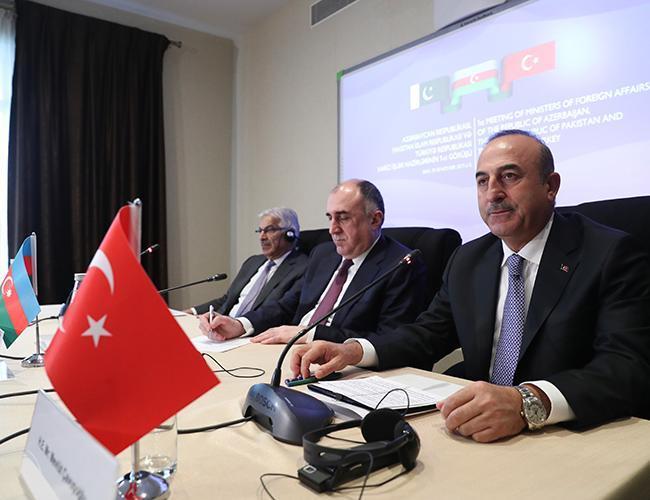
If any threat to Turkey is posed from Syria’s Afrin province, where Kurdish militants are dominant, the Turkish military will intervene, Foreign Minister Mevlüt Çavuşoğlu stated on Nov. 30.
“Whenever a threat is posed to Turkey from Afrin or another region, we will enter without hesitation. We will clean out the terrorists, just as we entered the Euphrates Shield Operation region when we were threatened in Kilis and cleaned out Deash [Islamic State of Iraq and the Levant – ISIL],” Çavuşoğlu said, speaking on the sidelines of a trilateral meeting with the Azerbaijani and Pakistani foreign ministers.
The minister called on the Pentagon to heed U.S. President Donald Trump’s “pledge” not to arm the People’s Protection Units (YPG) in Syria anymore during a phone conversation with President Recep Tayyip Erdoğan.
“We do not interfere in the U.S.’s internal affairs, but if the Pentagon is not listening to their own president, then it ultimately concerns us, because the weapons given to them are a threat to us,” Çavuşoğlu said.
He stressed the words of the president should be heeded. “As Turkey, we give great importance to this. We keep every promise we make,” he said.
In a telephone call with Erdoğan on Nov. 24, Trump “promised to halt arms supplies to the PKK/PYD,”Çavuşoğlu said after the phone conversation, referring to the outlawed Kurdistan Workers’ Party (PKK) and its Syrian affiliate, the Democratic Union Party (PYD).
The Pentagon said on Nov. 27 it was reviewing “adjustments” in arms for Syrian Kurdish forces but it stopped short of halting weapons transfers, adding that such decisions would be based on battlefield requirements.
“We are reviewing pending adjustments to the military support provided to our Kurdish partners in as much as the military requirements of our defeat-ISIS and stabilization efforts will allow to prevent ISIS from returning,” said Pentagon spokesman Eric Pahon, using another acronym for ISIL, which U.S.-backed forces are battling in Syria.